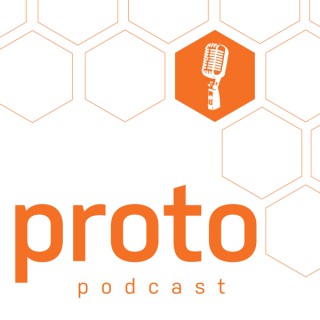
Proto Podcast
Follow Proto PodcastThe Proto Podcast explores the frontiers of medicine, including the places where medicine meets technology, the arts, law and culture. This podcast is a companion to the award-winning magazine, produced since 2005 by Massachusetts General Hospital.
- Jul 8, 2021 LATEST EPISODE
- infrequent NEW EPISODES
- 21m AVG DURATION
- 15 EPISODES
Latest episodes from Proto Podcast

New data may solve two of the most famous “cold cases” in medical history—the deaths of Ernest Shackleton and Edgar Allen Poe.

People who live with a disability are no stranger to overcoming obstacles. But the bias of a clinician shouldn’t be one of them.

Medical research labs have faced a difficult stretch of closed buildings and competing priorities. Yet they have also produced milestone discoveries—and not only on COVID-19.

The ascendance of virtual and distanced care has taken place with extraordinary speed. Lee Schwamm discusses which innovations are likely to stick and some bumps in the road ahead.

The crises of racism and COVID-19 overlap and reinforce one another. What steps can medicine take to make the pandemic response more just?

Psychiatrist Robert Waldinger’s TED talk about what makes a good life has been viewed more than 32 million times. Can those rules be applied to quarantining as well?

How can literature serve medicine? An interview with the first “writer-in-residence” at Massachusetts General Hospital.

The body can behave strangely at high altitudes. What can that teach researchers about life at sea level?

Podcast: The Important, Impossible Role of the Chinese Graduate Researcher
Scientific collaborations with China are the latest front in the trade war. Foreign students are torn between two nations—and wrestling with a mental health crisis.

Hospitals get a step closer to conquering a deadly disease that most people have never heard of.

Psychiatry is finding its footing with machine intelligence. New tools may dramatically help those who need it the most.

Researchers are untangling how animals can live in the Arctic and Antarctic cold. The applications for human medicine could be vast.

Martin Hirsch explores the role of a tenacious virus and the role of “fake news” in the great epidemic of 1918.

Women are significant contributors to research, but their careers are often cut short when they have children. What can be done to remedy this gender disparity?

Given half a chance, non-scientists can also make discoveries that move medicine forward.








